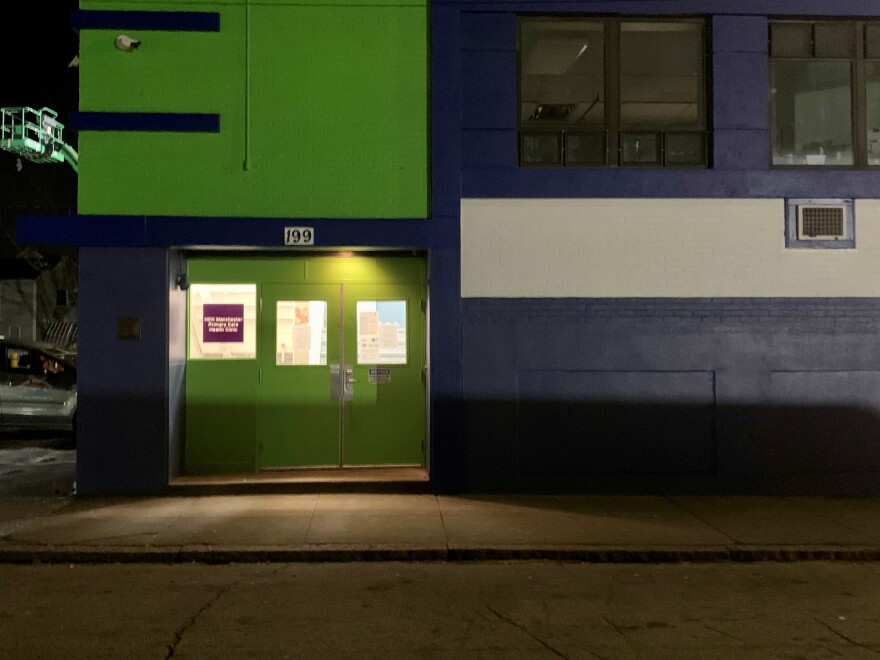On an October night, six people waited outside Families in Transition, the only adult emergency shelter in Manchester. Each was told all the beds were occupied, so they had to find another place to sleep.
Dam Wright, a local volunteer with the New Hampshire Mutual Aid Relief Fund, said the organization usually has to turn people away on cold nights like this one.
“It’s not just the weather. Lately, we have seen new faces, people who have lost their homes during the COVID pandemic,” he said.
Wright usually hears people have been staying with family or friends first, but now they have to find a place in local shelters like Families in Transition (FiT).
He’s noticed a couple of people are regularly turned away. All he can do is give them advice on where to sleep outside and distribute some hand warmers. If they arrive earlier the next day, maybe they’ll get a bed.
It’s unclear how many people have become homeless so far this year in New Hampshire. Families in Transition expects many people to come through their doors in the next few months — especially families. There are only eleven units available for them and a waiting list of more than thirty families.
The most recent numbers, from 2020, counted 1700 homeless people in Manchester, a figure that includes a count of families, students, veterans, people who are chronicially homeless and people who are unsheltered. Only 130 beds are available at FIT.
Kelly McAndrew couldn’t get a bed that night at Families in Transition. She and a friend were waiting in line outside. She’s experienced homelessness on and off the past ten years. A few weeks ago, she couldn’t pay her rent.
She has a broken arm because she said she was robbed a few nights ago and she's afraid something terrible could happen again.
“We will find a sort of hallway to curl up in or something,” she says.
Staffing is also a challenge for Families in Transition. On the night an NHPR reporter was there, only two staff were posted at the shelter. Some of the people sleeping inside the shelter said that poses a security risk because; there’s no one to take care of the residents if a dispute arises.

Schonna Green, director of homelessness initiatives for the city of Manchester, says the city plans to intervene with landlords and accommodate families in motels. But until then, emergency shelters and city officials are counting on local churches to accommodate people who need protection soon.
“We have other organizations to help out, but the inventory is extremely low, And we ask everybody to participate with their housing at least temporarily,” says Green.
But even when beds are available, the location isn’t always ideal. People NHPR spoke with said the place was full of bedbugs and short on blankets.
Families in Transition’s director of communications, Kyle Chumas, said they have received the complaints via email and are working on resolving them.
There’s more to worry about for Families in Transition than insufficient resources. Samantha Colby, another local volunteer, is gathered with a small group on the sidewalk. As someone who has experienced homelessness before, she says she knows there are other worries about the coming months.
“It’s hard to sleep when you are cold and don’t feel safe,” Colby says. Another person chimes in with Colby’s comments and says, “when you are hunted.”
“It’s tragic in the winter,” Colby concludes.








